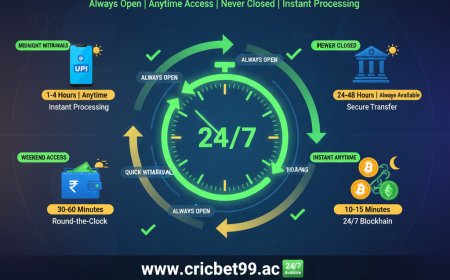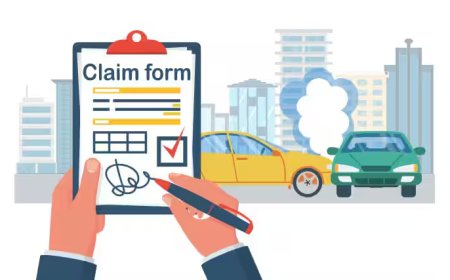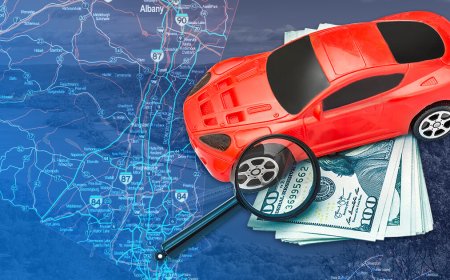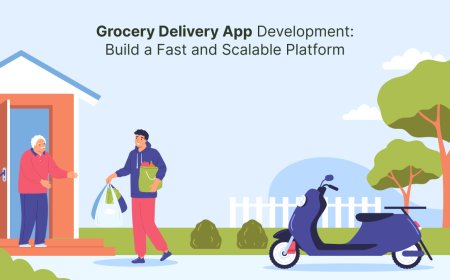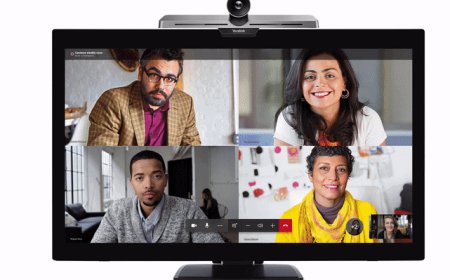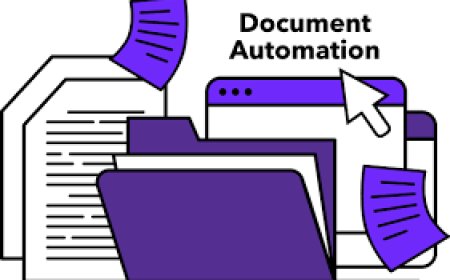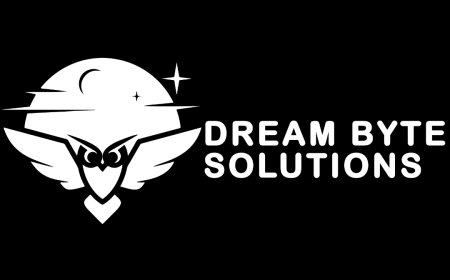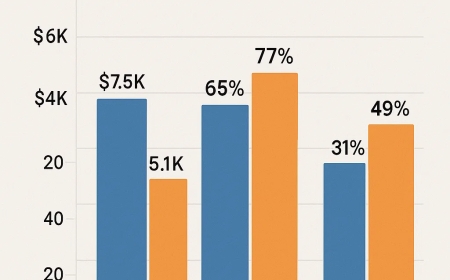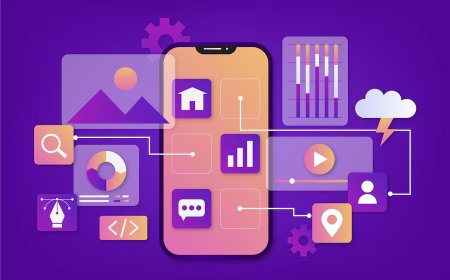How to Monetize Podcast
How to Monetize Podcast Podcasting has rapidly evolved from a niche hobby to a mainstream medium, offering creators unique opportunities to build audiences and generate income. Monetizing a podcast involves turning your passion and content into a sustainable revenue stream. Whether you’re a beginner or an experienced podcaster, understanding how to effectively monetize your podcast is crucial for
How to Monetize Podcast
Podcasting has rapidly evolved from a niche hobby to a mainstream medium, offering creators unique opportunities to build audiences and generate income. Monetizing a podcast involves turning your passion and content into a sustainable revenue stream. Whether youre a beginner or an experienced podcaster, understanding how to effectively monetize your podcast is crucial for long-term success.
This comprehensive tutorial will guide you through proven strategies, tools, and best practices for monetizing your podcast. Youll learn practical steps to start earning, explore real examples from successful podcasters, and find answers to frequently asked questions.
Step-by-Step Guide
1. Build a Loyal and Engaged Audience
Before monetizing, focus on growing your listener base. A large, engaged audience attracts advertisers and supports other revenue methods. To build your audience:
- Create high-quality, consistent content: Publish episodes regularly and focus on delivering value.
- Optimize for discoverability: Use SEO techniques in your episode titles, descriptions, and show notes.
- Promote on multiple channels: Leverage social media, email newsletters, and podcast directories.
- Engage with your listeners: Respond to feedback, create community spaces, and encourage listener participation.
2. Choose the Right Monetization Model
Podcasts can be monetized through various models. Choose one or combine multiple based on your audience size, niche, and content style:
- Sponsorships and Advertising: Partner with brands to promote their products during your episodes.
- Listener Donations and Crowdfunding: Use platforms like Patreon or Buy Me a Coffee to receive support directly from your audience.
- Premium Content and Subscriptions: Offer ad-free episodes, bonus content, or early access for paying subscribers.
- Merchandise Sales: Sell branded merchandise such as t-shirts, mugs, or stickers.
- Affiliate Marketing: Promote products or services and earn commissions on sales generated through your referral links.
- Live Shows and Events: Host live podcast recordings or events and charge for tickets.
3. Set Up Sponsorship and Advertising Deals
Advertising is one of the most common ways to monetize podcasts. To attract sponsors:
- Prepare a media kit: Include listener demographics, download statistics, and engagement metrics.
- Identify potential sponsors: Look for brands aligned with your podcasts niche and audience.
- Pitch sponsorship opportunities: Highlight the benefits of advertising on your show, including reach and engagement.
- Negotiate terms: Discuss ad formats (pre-roll, mid-roll, post-roll), pricing, and campaign length.
- Incorporate ads naturally: Maintain authenticity and ensure ads fit your podcast style.
4. Launch Listener Support Campaigns
Encourage your listeners to support your work voluntarily:
- Choose a platform: Patreon, Ko-fi, or similar services enable recurring or one-time donations.
- Create tiers and rewards: Offer incentives like exclusive content, shout-outs, or merchandise.
- Promote your campaign: Mention it in your episodes, website, and social media.
- Build trust: Clearly communicate how funds will be used to improve the podcast.
5. Offer Premium Content and Memberships
Monetize through exclusive content offerings:
- Create special episodes: Deep dives, interviews, or content unavailable on free platforms.
- Use subscription platforms: Services like Apple Podcasts Subscriptions or Spotifys Anchor support paid content.
- Implement paywalls: Restrict premium content access to paying members only.
6. Sell Merchandise and Products
Leverage your brand to generate revenue through physical and digital products:
- Design branded merchandise: Use services like Printful or Teespring to create and sell items without upfront inventory costs.
- Create digital products: E-books, guides, or courses related to your podcast topics.
- Promote merchandise effectively: Mention it within episodes and on your podcast website.
7. Use Affiliate Marketing
Recommend products or services and earn commissions:
- Join affiliate programs: Amazon Associates, ShareASale, or niche-specific programs.
- Integrate affiliate links: Include them in show notes, websites, and social media posts.
- Disclose affiliations: Maintain transparency with your audience.
8. Host Live Events and Workshops
Expand your revenue through in-person or virtual events:
- Organize live podcast recordings: Charge admission or sell merchandise onsite.
- Conduct workshops or webinars: Teach podcasting skills or niche-related topics.
- Promote events: Use your podcast and social media to attract attendees.
Best Practices
1. Maintain Content Quality and Consistency
High-quality content keeps your audience engaged and attracts advertisers. Consistency in publishing builds listener loyalty and improves rankings in podcast directories.
2. Be Transparent With Your Audience
Clearly disclose sponsorships, affiliate links, and monetization methods. Transparency fosters trust and long-term relationships.
3. Understand Your Audience
Use analytics to learn about listener demographics, preferences, and behaviors. Tailor monetization strategies to what resonates most with your audience.
4. Diversify Revenue Streams
Relying on a single income source can be risky. Combine sponsorships, listener support, merchandise, and other methods to build a stable income.
5. Optimize Your Podcast for SEO
Use relevant keywords in titles, descriptions, and transcripts to improve visibility and attract new listeners.
6. Build Strong Relationships With Sponsors
Deliver value by meeting sponsor expectations and providing detailed campaign reports. Positive relationships can lead to long-term partnerships.
7. Protect Your Brand
Choose sponsors and products that align with your values and audience interests to maintain authenticity.
Tools and Resources
Podcast Hosting Platforms
Anchor: Free hosting with built-in monetization options.
Libsyn: Reliable paid hosting with advanced analytics.
Buzzsprout: User-friendly platform with monetization tools.
Advertising Networks
Podcorn: Connects podcasters with advertisers.
Midroll: Premium podcast advertising network.
AdvertiseCast: Marketplace for podcast sponsorships.
Listener Support Platforms
Patreon: Membership platform for recurring donations.
Buy Me a Coffee: Simple one-time or recurring support.
Ko-fi: Accept donations and sell content.
Merchandise Services
Printful: Print-on-demand merchandise fulfillment.
Teespring: Create and sell branded products without inventory.
Redbubble: Marketplace for artist-designed merchandise.
Affiliate Programs
Amazon Associates: Large marketplace with diverse products.
ShareASale: Affiliate network with numerous merchants.
Commission Junction: Affiliate marketing platform with global brands.
Analytics Tools
Google Analytics: Track website traffic and user behavior.
Podtrac: Podcast-specific analytics.
Chartable: Audience insights and attribution tracking.
Real Examples
"The Joe Rogan Experience"
One of the most successful podcasts globally, Joe Rogan monetizes through exclusive licensing deals (Spotify), sponsorships, and live events. His approach highlights the importance of diversified revenue and large audience reach.
"Call Her Daddy"
This podcast gained massive popularity and monetizes through high-paying sponsorships, premium subscription content, and merchandise sales. The shows clear brand identity and audience engagement are key to its success.
"Smart Passive Income"
Hosted by Pat Flynn, this podcast monetizes through affiliate marketing, sponsorships, and selling educational products. Flynns transparency and value-driven content foster trust and conversions.
"My Favorite Murder"
A true crime podcast that leverages merchandise, live shows, and Patreon support. Their active community drives multiple income streams through engagement and loyalty.
FAQs
How many listeners do I need before I can monetize my podcast?
Theres no fixed number, but generally, sponsors look for podcasts with at least 1,000 downloads per episode. However, niche podcasts with smaller, engaged audiences can still attract sponsorships and use other monetization methods effectively.
Can I monetize my podcast if its on free platforms?
Yes. Many free hosting services offer monetization tools, and you can promote listener support, affiliate products, and sponsorships regardless of where your podcast is hosted.
Do I need a business license to monetize a podcast?
Requirements vary by location. Its advisable to check local regulations and consider forming a business entity if your podcast generates significant income.
How do I find sponsors for my podcast?
Start by preparing a media kit and identifying brands in your niche. Reach out directly, join podcast advertising networks, or use platforms like Podcorn to connect with advertisers.
Is affiliate marketing effective for podcasts?
Yes, especially when you promote products relevant to your audience. Authentic recommendations and clear disclosures improve listener trust and conversion rates.
Conclusion
Monetizing a podcast requires strategic planning, audience understanding, and consistent effort. By building a loyal listener base and exploring multiple revenue streamsfrom sponsorships and listener support to merchandise and premium contentyou can turn your podcast into a sustainable business.
Focus on delivering quality content, maintaining transparency, and aligning monetization efforts with your brand values. Utilize the right tools and learn from successful podcasters to optimize your approach. With patience and persistence, monetizing your podcast can become a rewarding venture that supports your creative passion.








&srotate=0)


